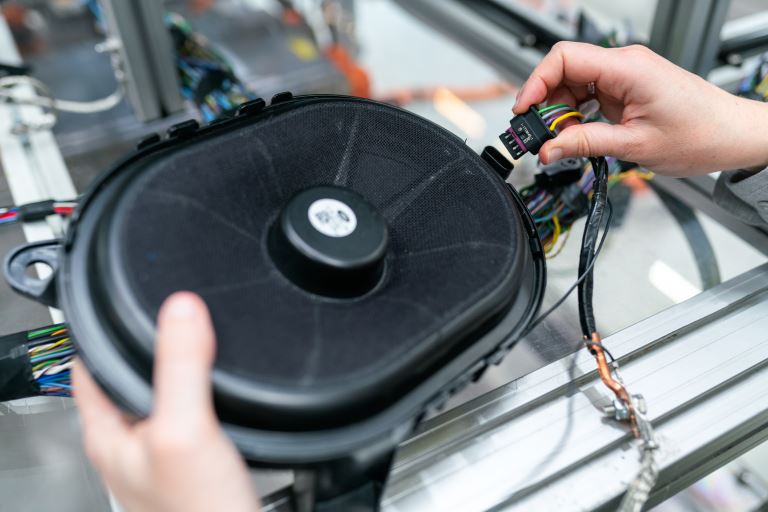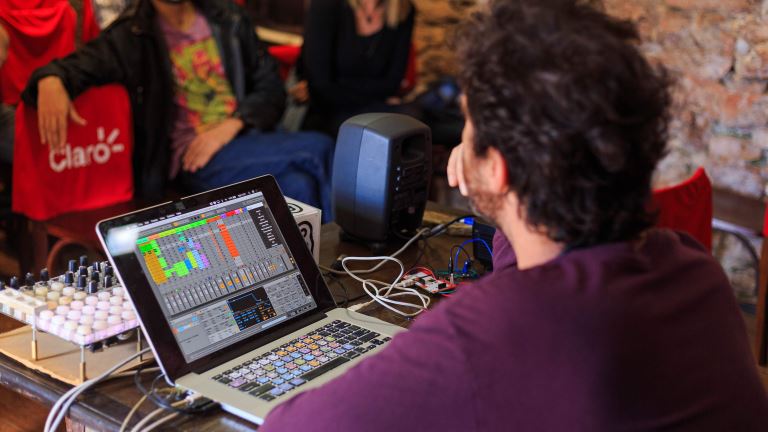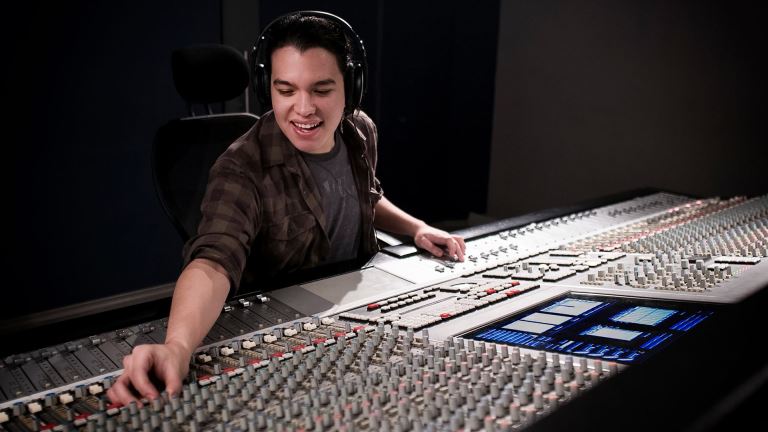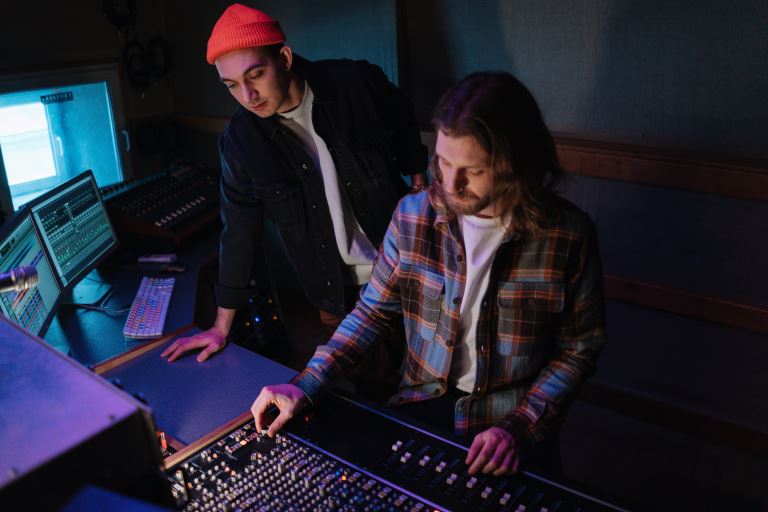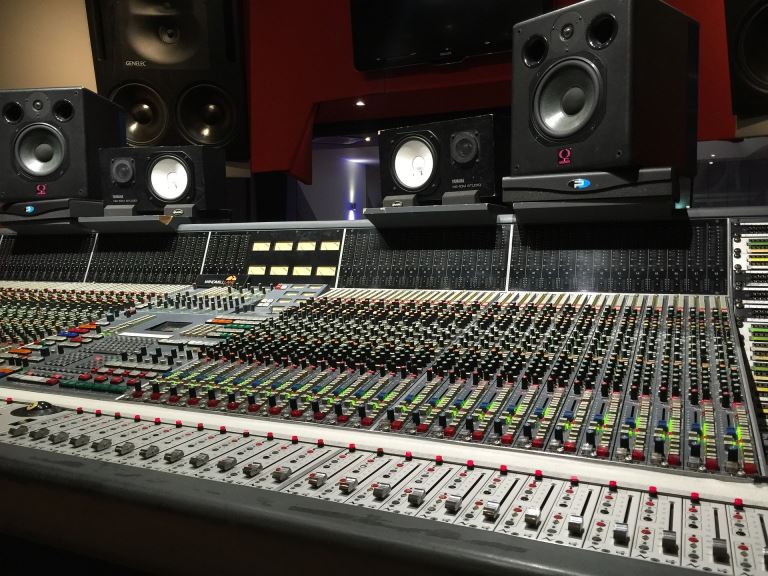
What Are the Best Audio Production Tools for Audio Engineering?
pThere are several best audio production tools for audio engineering such as digital audio workstations audio interfaces microphones synthesizers effects processors equalizers and compressorsp
You must use the best audio production tools to get the best in audio engineering. Do you know them? This article is for you! It's well-researched to help you learn about the best tools you can use for audio engineering.
There are several best audio production tools for audio engineering, such as; digital audio workstations, audio interfaces, microphones, synthesizers, effects processors, equalizers, and compressors.
Let us not beat about the bush; to get the best audio, you need to use the best production tools in audio engineering. There is no two way about it. I want to guide you into knowing the best tools to make your audio great. This article will be an excellent guide.
What Are the Best Audio Production Tools for Audio Engineering?
As an audio engineer, you capture, manipulate, and process audio to create a desired sound or effect. This can include recording and editing music, dialogue for films and television, sound effects for video games, and more. You will need various audio production tools, including recording software, microphones, synthesizers, and effects processors.
These tools allow you to create and shape the audio signal, turning raw sound into a polished, professional product. The right audio production tools are crucial to achieving your creative vision and delivering high-quality audio. Here are some of the best audio production tools for audio engineers:
Digital audio workstations (DAWs)
DAWs are software programs that allow you to record, edit, and produce audio. They typically include various features, such as recording multiple tracks, applying effects and processing, and mixing and mastering the audio. Some popular DAWs include Pro Tools, Logic Pro, and Ableton Live.
Pro Tools are a professional-grade DAW that is widely used in commercial studios. They have advanced features, such as support for high-resolution audio and an extensive library of plug-ins. Logic Pro is famous for Mac users, with a user-friendly interface and a range of built-in instruments and effects. Ableton Live is more flexible and famous for electronic music production and live performances.
Audio interface
An audio interface is a device that connects your computer to your audio equipment. It allows you to record audio from external sources such as microphones and instruments and outputs audio to speakers or headphones. They have inputs for microphones and instruments and outputs for speakers or headphones. They may also include built-in preamps and digital-to-analogue converters (DACs). Some examples of the best audio interface are UA Volt 2 USB, FDUCE SC11, XTUGA USB, and Asmus USB, among others.
Microphones
They are essential for recording high-quality audio. There are many different microphones available, each with its characteristics and benefits depending on your goals. Some highly rated microphones are the Ovedisa USB microphone, TONOR wireless microphone, Shinco handheld wired microphone, and TONOR dynamic karaoke microphone.
Synthesizers
They are electronic instruments that can create a wide range of sounds, from classic analogue tones to digital soundscapes. They feature a range of oscillators, filters, and envelopes that allow you to shape the sound. Some popular synthesizers include the Moog synthesizer and the Korg synthesizer. The Moog synthesizer is known for its warm, rich sound and has been used on a wide range of classic recordings. The Korg synthesizer is a more affordable option with a range of built-in sounds and the ability to create patches.
Effects processors
Effects processors allow you to add reverb, delay, and distortion to your audio. These can be hardware units or software plug-ins such as the MOOER PE100 Portable Desktop guitar and Behringer Super-X Pro CX3210 V2. Hardware effects processors are physical devices you connect to your audio equipment, while software plug-ins are installed on your computer and can be used within your DAW. Effects processors can add depth and character to your audio or create special effects such as ambient soundscapes or distorted guitar tones.
Equalizers (EQs)
Equalizers allow you to adjust the frequencies of your audio, shape the sound and balance the mix. They include a range of frequency bands that you can boost or cut to accommodate the tonal balance of the audio, such as Bellari audio EQ570, BOSS Audio systems AVA1210 7 Band and Power Acoustik PMW-16 Pre-amp equalizer. High-frequency EQs can be used to add brightness and clarity to vocals, while low-frequency EQs can be used to add warmth and depth to bass instruments.
Compressors
They control the dynamic range of an audio signal, reducing the loudest parts' volume and increasing the quietest parts' volume hence helping to even out the volume of a recording and make it more consistent. You can try out Behringer MULTICOM PRO-XL MDX4600, WesAudio_Dione 500 Stereo, and MXR studio compressors. They feature controls for the threshold, ratio, attack, and release, which allow you to fine-tune the amount of compression applied to the signal. Additionally, they are used on vocals and drums to add punch and definition.
How To Become an Audio Engineer
Becoming an audio engineer usually requires a combination of education and practical experience. Here are some steps you can take to start a career in audio engineering:
- Learn about the field: Audio engineering is a broad field that encompasses a wide range of activities, from recording and mixing music to designing sound systems for live events and movies. Familiarizing yourself with the different aspects of audio engineering will help you understand what the job entails and what skills and knowledge you need to develop.
- Get an education: While there is no specific educational path you need to follow to become an audio engineer, many professionals have a college degree in a relevant field, such as audio engineering, music production, or sound design. Many colleges and universities offer degree programs in these areas, and some even have specific programs in audio engineering.
- Gain practical experience: Besides formal education, getting hands-on experience in the field is essential. This can be through internships, volunteering, or part-time jobs at recording studios, live music venues, or other locations where audio engineering work is done.
- Build a portfolio: As you gain experience, start building a portfolio of your work. This can include recordings you have worked on, sound design projects, or other audio engineering projects you have completed. A strong portfolio will help you stand out to potential employers and demonstrate your skills and abilities.
- Stay up to date: The audio engineering field is constantly evolving, with new technologies and techniques constantly being developed. To stay competitive, staying up to date with the latest developments in the field and continuing to learn and grow as an audio engineer is essential.
What Are the Career Paths in Audio Engineering?
There are many career paths available to audio engineers, depending on their interests and skills. Regardless you want to work in a commercial studio, on film and television projects, or specialize in a specific area such as music production or video game audio, there are opportunities available. Here are some of the career paths that audio engineers can pursue:
| Career options | About |
| Commercial studio engineer |
A commercial studio engineer works in a professional recording studio, recording and producing music or other audio projects. They may work with a range of clients, from major-label artists to independent musicians. |
| Freelance engineer |
Many audio engineers work as freelancers, taking on various projects on a project-by-project basis. It allows them to have a flexible schedule and work with various clients. |
| Music production | Audio engineers specializing in music production collaborate with artists to create, record, and produce music. They might work in a commercial studio or mobile recording setup and collaborate with record labels and producers. |
| Film and television |
They create audio for movies, television shows, and other visual media. They might work on dialogue recording, sound design, and mixing for film and television projects. |
| Video game audio |
Audio engineers are responsible for video game audio and manage video games' sound design and music. It can include creating sound effects, composing music, and implementing audio in the game engine. |
| Live Sound |
Audio engineers work on the audio for concerts, events, and live performances. They might work with a range of clients, from touring musicians to corporate events. |
| Radio and Podcasting | They are in charge of radio programs and podcasts. Also, they might work on recording and editing interviews, creating sound effects, and mixing audio for broadcast. |
Conclusion
Suppose you have a passion for music and audio or are interested in exploring the creative and technical side of media production. In that case, audio engineering might be an excellent field for you to consider. The tools mentioned above will be of great help to you. As you've read above, there are also many rewarding opportunities in audio engineering, both in the music industry and other media production areas. Reach out to us for top-notch audio engineering services.
